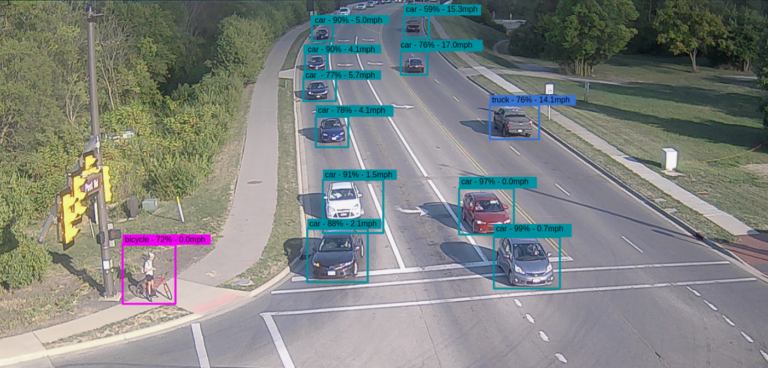The US city of Phoenix, Arizona, is piloting an AI-powered autonomous traffic management platform to improve flow, safety and emissions on a busy commuter corridor.
Provided by California-based NoTraffic, the solution is said to have delivered a 40% reduction in vehicle delay in one recent US deployment.
The system uses artificial intelligence (AI) and connected vehicle technology (V2X), which distinguishes between travel modes (including bikes, pedestrians, cars, buses, emergency vehicles and commercial fleets) and calculates in real-time the most optimal service for the intersection, autonomously changing the lights accordingly.
It also enables emergency vehicle pre-emption, transit signal priority (TSP) and pedestrian prioritisation, and can take into account vehicles’ blind spots.
“We are now seeing the convergence of technology-enabled automobiles and traffic management systems working together to move vehicles more effectively through busy corridors,” said Kini Knudson, Phoenix street transportation director.
“The opportunity to collaborate and test this new technology with regional and global partners is very exciting for Phoenix.”
The pilot is part of the Maricopa Association of Governments (MAG) emerging technologies initiative, which is designed to test and study new technologies for viability before large-scale investments are made.
Partners in the programme include the City of Phoenix, Greater Phoenix Economic Council, Arizona State University, University of Arizona and Northern Arizona University.
The University Task Force established by MAG will provide independent evaluation of the deployment.





